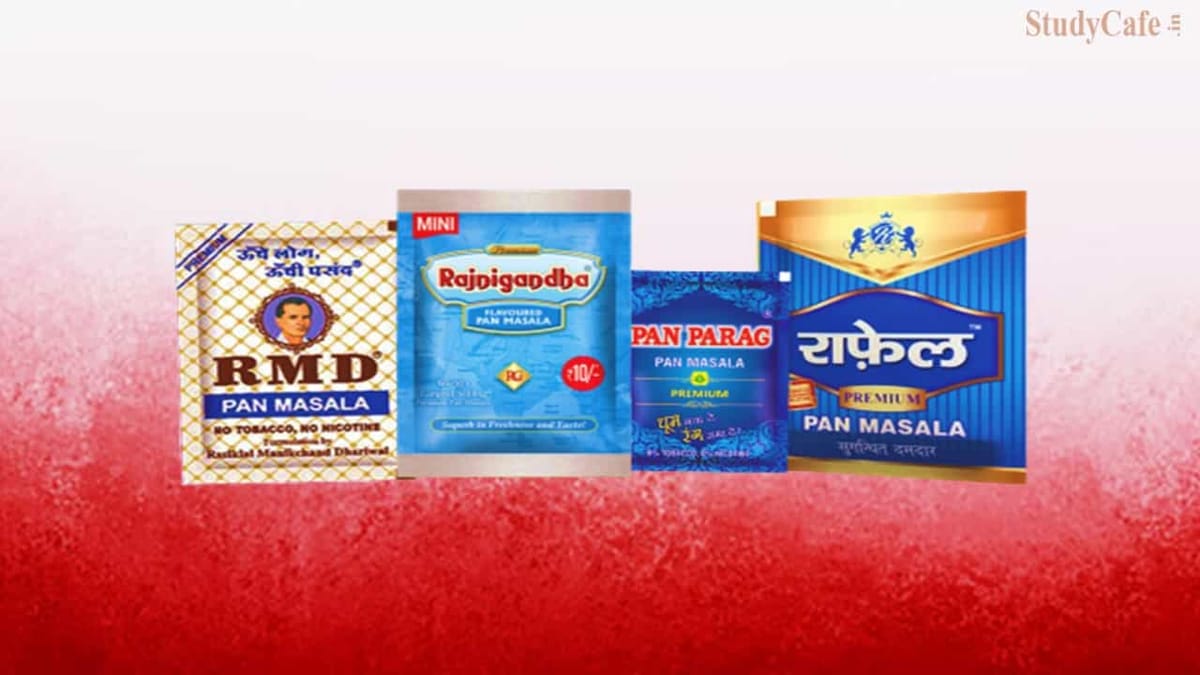Reetu | Oct 12, 2022 |

GST Scrutiny to be Tighten for Gutkha and Pan Masala Companies
The Governments’ intensified attempts to stop tax evasion by pan masala and gutkha enterprises would likely result in heightened monitoring and audits of their operations. However, a plan to tax them with the Goods and Services Tax (GST) based on installed industrial capacity might be dropped.
The GST Council established a group of ministers (GoM) in May 2021, under the direction of Niranjan Pujari, the finance minister of Odisha, to investigate the viability of levying GST on goods like pan masala and gutkha based on the installed capacity of the units rather than their actual production. The decision was made against the backdrop of a dip in earnings from these businesses that many states recorded after the implementation of the GST in July 2017. By underreporting output, the units engaged in extensive tax evasion, according to tax authorities.
According to a member of the GoM, the GoM has completed its study but has chosen not to reveal its recommendations. The report will probably be discussed at the following GST Council meeting. Currently, pan masala and certain tobacco products are subject to both the “compensation cess” and the maximum GST rate of 28%. In comparison to pan masala, tobacco products have a 290% cess rate while pan masala has a 135% cess rate.
The Centre disagrees with the states’ assertion that tax revenues from these industries have decreased compared to the previous excise-VAT regime, despite the fact that it also believed tax fraud was a problem with this industry under both regimes.
Such products were taxed under the previous excise regime according to the installed maximum machinery capacity rather than the actual production and sales. The tax base under the GST system is the actual transaction (sale) value. Some states urged a return to capacity-based taxing for the industry that was prone to tax evasion when the GST was implemented in 2017.
There were many issues with the excise regime as well because tax officers were required to regularly survey the number of machines in use, and there would frequently be disagreements with industry participants about this number. At one point, tax officers discovered that manufacturers were speeding up machines due to technology in order to underreport output and evade taxes. Smaller players went out of business as a result of their inability to invest in new machinery and technology, while larger players benefited from the process.
The capacity-based tax system will make it challenging to administer input tax credits because wholesalers and retailers don’t use a capacity-based system and GST operates on a value chain basis.
“Getting information from several sources, such as the return filing information of suppliers or taxpayers, is the only approach to stop tax evasion. The acquisition of raw materials, e-way bills, and input services are some examples of additional characteristics that can be used to confirm or authenticate these data,” an official stated.
In case of any Doubt regarding Membership you can mail us at [email protected]
Join Studycafe's WhatsApp Group or Telegram Channel for Latest Updates on Government Job, Sarkari Naukri, Private Jobs, Income Tax, GST, Companies Act, Judgements and CA, CS, ICWA, and MUCH MORE!"